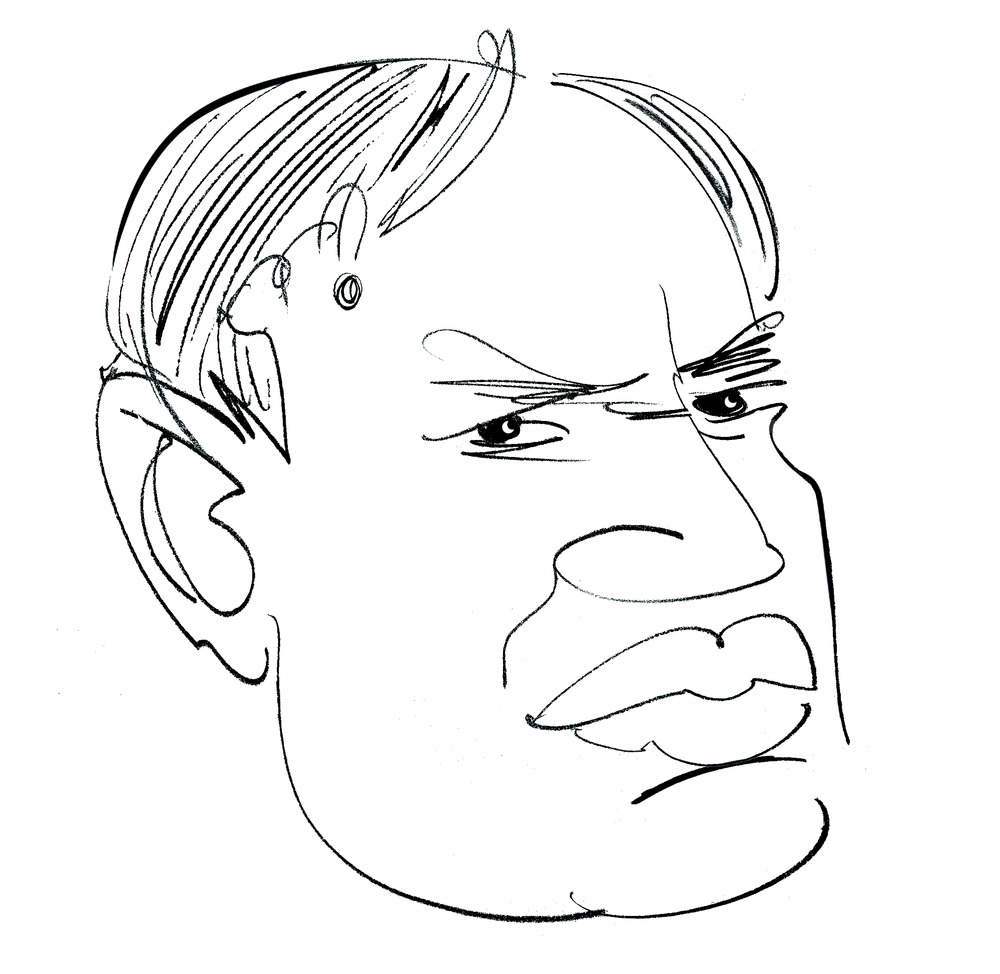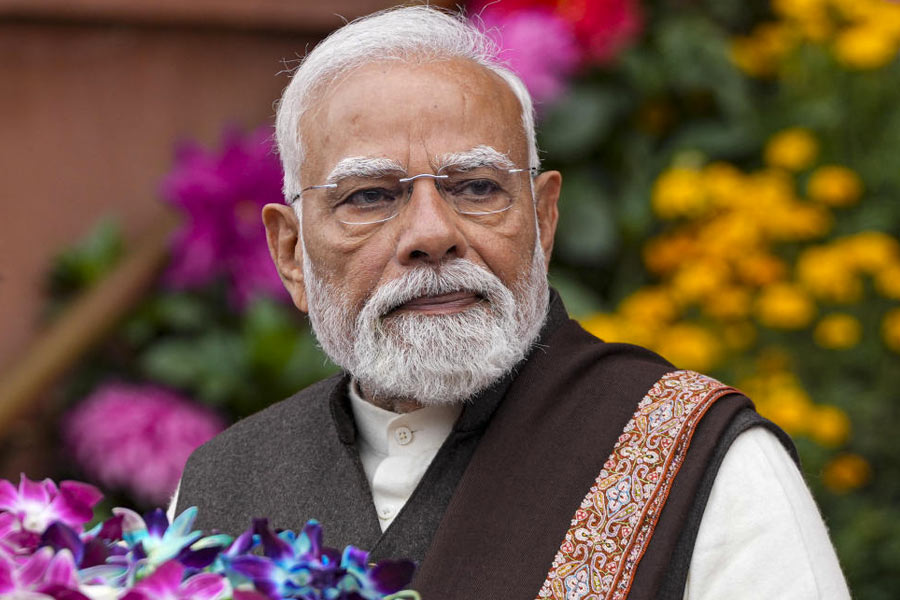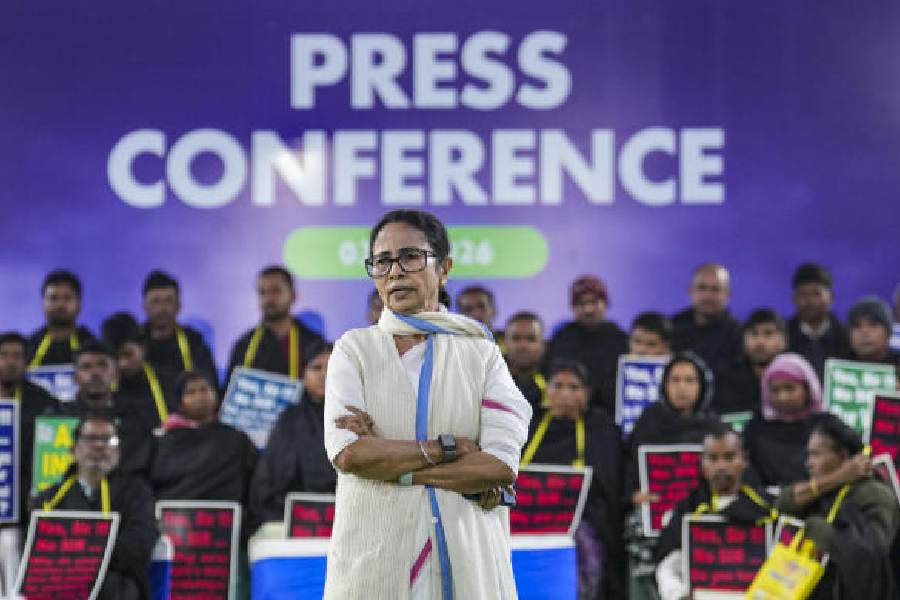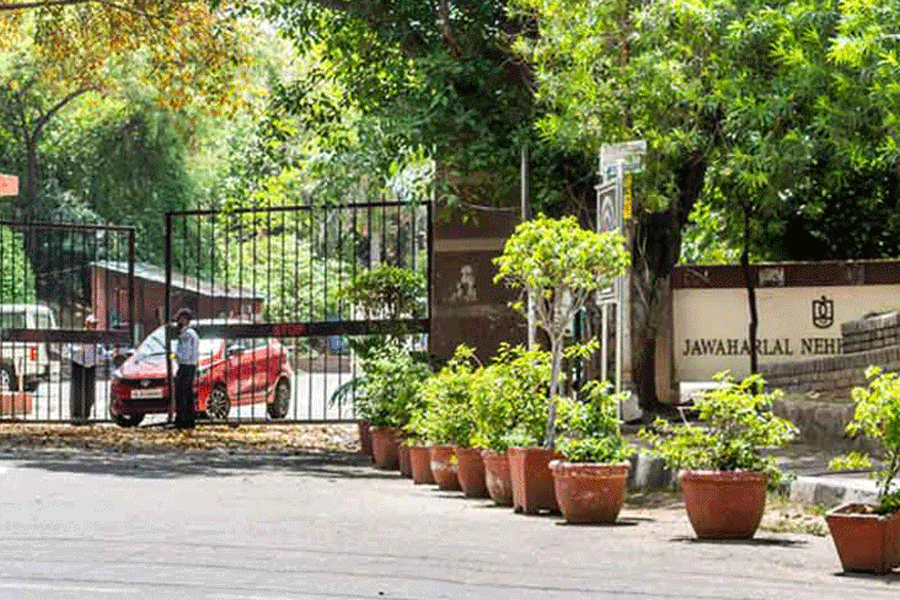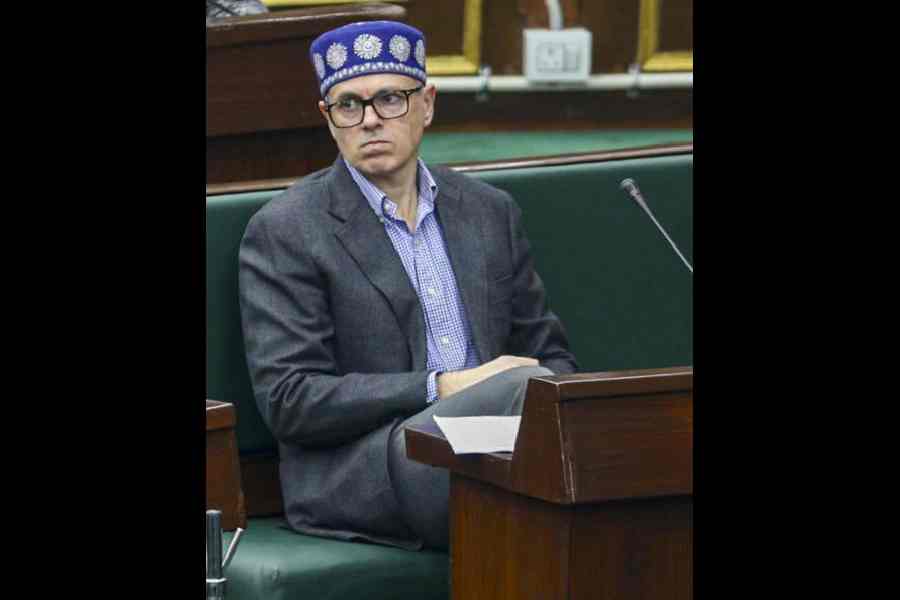
Udit Raj looks angry. He frowns as an aide tells him that there's a call from a former Prime Minister's nephew. " Arrey, chhoro yaar," he shouts at him - just forget it. He looks more and more irritated as people flood the room. And his eyebrows merge into one harsh slash.
There is good reason for the Dalit member of Parliament (MP) to be incensed. There has been a spate of attacks on Dalits across the country - by members of militant Hindu groups affiliated to Udit Raj's Bharatiya Janata Party (BJP). In Una in Gujarat, four Dalit men were lashed by a mob of cow protectors, led by a Shiv Sena leader. Three members of a Dalit family in Karnataka's Chikmagalur district were attacked by the Bajrang Dal for alleged cattle theft and slaughter. Earlier this week, two Dalit men in Lucknow were thrashed by a group of so-called cow vigilantes for allegedly skinning a dead cow.
"I am ashamed of these cow vigilantes," Udit Raj, Lok Sabha member from North West Delhi says. "I am ashamed to see Dalits being treated worse than animals by people who belong to their own religion."
He is angry, no doubt, but circumspect, too. For, while the BJP leadership has been accused of looking the other way as its supporters run amok, Udit Raj - who joined the party just before the general elections two years ago - cannot speak up. In fact, in a newspaper article this week, he tried to give the BJP an exit route, by underlining that it wasn't just his party that was at fault. "Violence and atrocities against Dalits cannot be linked to any party or government," he wrote.
But clearly, Udit Raj is in a bind. Dalits are upset with the former bureaucrat they once thought would usher in change. At his residence in Lutyens's Delhi, scores of Dalit men, from Maharashtra, Gujarat and Bihar, have gathered to voice their worries. They want him to tell the top BJP leadership - including Prime Minister Narendra Modi - that these attacks have to stop.
Udit Raj, 55, has not been able to do that. He has not met Modi or BJP president Amit Shah. Behind closed doors, he has been telling his aides that there is little he can do. " Kya karein, koi sunne ke liye raazi hi nahin hai - what can I do, nobody is ready to listen to me."
He has been waiting for an appointment with Modi and Shah for over a week now. "They decide according to their priority, I think," he says.
Neither Udit Raj, nor the issue of Dalits, are apparently priorities for the BJP at the moment. It is, at best, two-faced on the issue. Modi often invokes the name and thoughts of Dalit icon B.R. Ambedkar in his speeches. He inaugurated an Ambedkar memorial in London and launched commemorative coins on him. But he did not condemn the recent attacks on Dalits or pull up the then BJP vice-president in Uttar Pradesh, Dayashankar Singh, for his sexist denigration of Bahujan Samaj Party leader Mayawati. And though Singh was later expelled from the party, there was no reaction from Modi when Raja Singh, a BJP MLA from Hyderabad, described the Una beating of Dalits as a "good thing" in a video uploaded on his Facebook page.
"But why do you want the Prime Minister to speak on this issue? The Union home minister (Rajnath Singh), has ensured the arrest of the culprits of the Una attack," Udit Raj counters defensively, "And I, myself, have asked for Raja Singh's expulsion."
But it is evident his voice doesn't go too far in the party. Raja Singh is still an MLA, and very much in the BJP. Not surprisingly, many of Udit Raj's supporters have been asking him what he's still doing in the BJP.
Why did he join the BJP, a party that has for long been dominated by upper castes, widely perceived as "Manuvadi"? He waves a hand in the air, indicating that he doesn't want to talk about it. He finally replies, choosing his words with care. "I joined the party because I thought I would bring a change in the condition of Dalits," he says. "I thought the party was ready to give space to Dalits."
Udit Raj admits that "caste does play a role" in the upper caste-dominated party. "It has always been so. Dalit leader (and former party president) Bangaru Laxman was thrown out of the party for being caught on camera while accepting a bribe in a fake defence deal expose by Tehelka because he was a Dalit. But the other accused in the case, George Fernandes, was re-inducted as the defence minister in the National Democratic Alliance government even before the inquiry was over. Justice was not done to Laxman by the party because he was a Dalit," he says.
Yet, he joined the party, after his own outfit, the Indian Justice Party, which he floated in 2003, failed to make a mark. He stresses that he is not an "ace" politician - he is certainly not in the league of former Uttar Pradesh chief minister Mayawati, who has emerged as the undisputed political face of Dalits. But Udit Raj and Mayawati cannot be on the same platform - the grapevine has it that he was keen to strike an alliance with her; she wasn't. Though Udit Raj criticises Dayashankar Singh's derogatory remarks on Mayawati, he also believes that her supporters were wrong to hurl abuse at Singh's daughter. "That's not right at all," he maintains.
He doesn't want to talk about Mayawati's chances in the Uttar Pradesh elections - though there is speculation that she may gain, electorally, from the BJP parivar's attacks on Dalits. But he does believe that the BJP, which got 24 per cent of the national Dalit vote share in 2014, will suffer in UP because of the attacks on Dalits. He merely stops with saying: "These incidents will have some bearing on the elections."
He should know - for Udit Raj understands the Dalit mind in Uttar Pradesh. This was where he grew up - in Sirsa village in Allahabad. And this was where he started to raise his voice against oppression - in fact, at home itself. He was in his teens when he stood up against his father for physically abusing his mother. In the Lala Ram Lal Agarwal Inter College and later at the Allahabad University, this lanky dark-skinned angry young man fought for the rights of the oppressed.
Udit Raj, who had been named Ram Raj by his parents, converted to Buddhism in 2001 to escape the "tyranny" of upper castes and rechristened himself. "It was a rebirth for me, so I changed my name to Udit Raj. Udit means awakened."
His wife, Seema Bahl, is from an upper caste. They met at the National Academy of Direct Taxes, where the two budding revenue service officers had gone for training. "In one of our initial meetings, I told her that I was a Dalit. To this, she asked, what does that mean? I was so impressed that I decided I had to marry her."
In the Indian Revenue Service - which he quit when he launched the Indian Justice Party - he made a name for himself as the voice of Dalits in government. It was his "uncompromising effort", he says, that forced the Atal Bihari Vajpayee government to pass the 81st, 82nd and 85th constitutional amendments, leading to the revival of reservations in promotion for SC/ST categories, which had been held "unconstitutional" by the Supreme Court.
That was then. Observers of Dalit politics believe he no longer has the rage that was his calling card once. "Some parliamentarians tell me that I was far more fearless when I was not in the BJP," he says. "But I tell them, I still hold my militant image."
If he does, he has kept it hidden from his party leaders so far. His voice was not heard when Dalit student Rohith Vemula committed suicide after being subjected to discrimination in Hyderabad University in January this year. He did not object to some of his party leaders calling his alma mater, Jawaharlal Nehru University (JNU), anti-national, or when JNU student leaders were arrested by the police. He, however, did attend a Mahishasura Shaadat Divas, to worship the demon who battled Durga, in JNU in 2013 - a celebration that had been condemned by the student wing of the BJP and some party leaders.
His aides say that in private, Udit Raj often expresses helplessness at not being able to push his party to help the community. Does that mean he may leave the BJP? Delhi CM Arvind Kejriwal has urged him to do so - but Udit Raj is not going anywhere, not yet anyway.
"I should be in the party and hope to get my due one day," he says. For the present, he would be happy merely to get that appointment he has sought with Modi.
tetevitae
1980: Ram Raj joins JNU. Born a khatik — a Scheduled Caste — the quick-tempered young man quickly earns a reputation championing Dalit rights
1988: Cracks the civil services, is selected for the Indian Revenue Service. Senior to Arvind Kejriwal by a couple of years, Raj is known as Gabbar Singh in the IT department
1997: Appointed national president of the newly formed All India Confederation of SC/ST Organizations
2001: Citing indignity suffered by Dalits under Hinduism, publicly embraces Buddhism and becomes Udit Raj; had earlier cast away his family name, Sonkar
2003: Resigns his government job and floats a political party — the Indian Justice Party. Looks, rather desperately, to make a political opening but fails
2014: Shuns Modi-bashing and joins the BJP. Gets the party’s Lok Sabha ticket from North West Delhi and beats former Union minister Krishna Tirath of the Congress to enter Parliament

